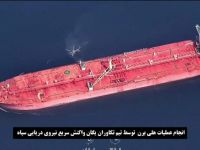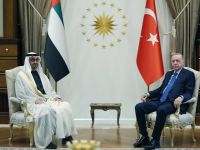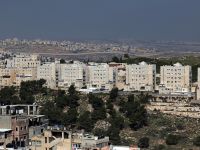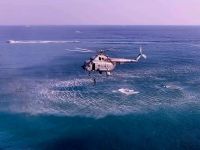Current Economic State
Bahrain is the smallest oil producer in the Gulf and the poorest in terms of hydrocarbon resources. It produces roughly 40,000 barrels per day from its own fields and receives 120,000 bpd from an offshore field it shares with Saudi Arabia. Still, its economy is oil-based and, thus, its economic health fluctuates with oil prices. Like its neighbors, the state is taking steps to reduce its dependency on oil through economic diversification.
To achieve this goal, this tiny nation is investing in industries like aluminum smelting, petrochemicals and ship repair. With government encouragement, Bahrain has long been established as the principal banking and financial center of the Gulf region. To protect its reputation in this field, the country is set to promulgate a new law that will combat money laundering. The government has also established the Bahrain Promotions and Marketing Board, a special office set up with inter-ministerial, joint public and private sector membership, which is responsible for coordination efforts to attract businesses and investments. It is also creating a regulatory framework to develop Bahrain as a regional financial and commercial hub.
Bahrain offers a prime location from which to do business within the much larger regional market. It is working to develop a tourism industry and trying to position itself for international economic conferences and fairs. But Dubai and other Gulf regional centers are seriously challenging its historical position as a regional trading center. In 1998, Bahrain attracted $3 billion worth of foreign investment.
Currently, wholly or partially government-owned enterprises dominate the economy, yet laws and regulations have been overhauled in recent years, particularly since 1990, in a bid to make the business climate as welcoming as possible for free enterprise and in order to lure foreign companies. Foreign investors are welcome to set up licensed export industries, with 100 percent foreign ownership. Commercial firms are likewise encouraged to set up 100 percent foreign-owned regional offices and distribution centers.
Toward the end of 1999, there were indications that Bahraini exports, along with oil prices, were bouncing back from the lows of 1998. The trade surplus in the third quarter of 1999 was at BD 79.9 million. Total exports in that period were BD 420.2 million, up 17.5 percent from BD 357.6 million in the previous quarter. The value of oil exports rose 38 percent to BD 284.3 million from BD 205.5 million in the second quarter. Imports also rose 11 percent from BD 306.5 million to BD 340.3 million. (BD1=$2.65).
The effects of the deflated oil prices in 1998 and the beginning of 1999 are noticeable on virtually all of the country's Economic Figures . The 1999-2000 budget deficit is expected to be BD 300 million, twice that of the previous year when the deficit was BD 150 million. The Government's total revenues are estimated at BD 1.138 billion, 9 percent lower than in 1998-1999. Government spending is predicted to shrink by 4.5 percent.
1998's low oil prices brought the country's oil export earnings to a 10-year low, reducing BD 260.8 million worth of export earnings between January and September 1998 as compared with the same period in 1997. The country's oil exports reached BD 498.9 million during the first 9 months of 1998 a 34 percent decline over the same period the year before. According to provisional figures, oil exports totaled BD 637 for the year.
Oil exports represented nearly 76 percent of total export earning in 1988 and 78 percent in 1990. That trend, however, has been downward during the 1990s, dropping to 59.7 percent in 1995, rising to 67.2 percent in 1996 but declining again to 62 percent in 1997. During the first 9 months of 1998, the percent of oil exports reached its lowest level since 1988, declining to 52.9 percent. Non-oil exports remained at almost the same level of BD 431.2 million between January and September 1998, compared with BD 432.3 million in those months of 1997.
The country recorded a trade deficit in the first three quarters of 1998 because of the low oil prices. Exports fell to BD 943.8 million and imports were BD 950.1 million, whereas during the same period in 1997 a trade surplus was recorded.
The government is trying to bring increased private participation into areas that have been traditionally under the government's sole domain. Besides the petroleum industry, the country's growth sectors, are aluminum, financial services, telecommunications and information technology, education, tourism and food processing.
New infrastructure will involve private financing. Public unrest at rising unemployment rates force the government to take further measures to encourage job-creation for Bahrainis. A policy of “Bahrainization” is likely to be expanded, and the Ministry of Labor will take a tougher stance on targets for the employment of nationals, while introducing new legislation to make it easier and cheaper for firms to take on Bahraini workers. To help maintain investment in infrastructure, Bahrain at the end of May 1999 signed a $25 million agreement with the Arab Fund for Economic and Social Development to finance an electricity network project.
Economic Figures (In BD millions, unless otherwise indicated)
1998* 1997
GDP (Current Prices BD millions) 2,369.7 2,261.5
Real GDP Growth (%) 4.8 3.1
Inflation (%) 0.6 -5.4
Total Exports 1,229.6 1,648.2
Oil Exports 637.0 1,020.7
Non-Oil Exports** 592.6 627.5
Total Imports 1,336.4 1,513.6
Oil Imports 274.0 529.2
Non-Oil Imports 1,062.4 984.4
Bahrain Crude Oil Production (thousand U.S. barrels) 13,751 14,159
Total Government Revenue 554.0 705.8
Gov't Revenue from Oil & Gas 259.4 422.7
Total Expenditure 704.5 703.6
Private Sector Deposits at Commercial Banks (excluding interbank deposits) 1,747.0 1,481.3
Government Deposits at Commercial Banks (excluding interbank deposits) 408.7 443.1
Interest rates on time deposit 4.39 (Q4) 5.40
Interest rates on savings deposit 2.29 (Q4) 2.40
Interest rates on business loans 8.60 (Q4) 8.70
Interest rates on personal loans 12.72 (Q4) 12.10
*Provisional
**Includes re-exports
© 2000 Mena Report (www.menareport.com)







